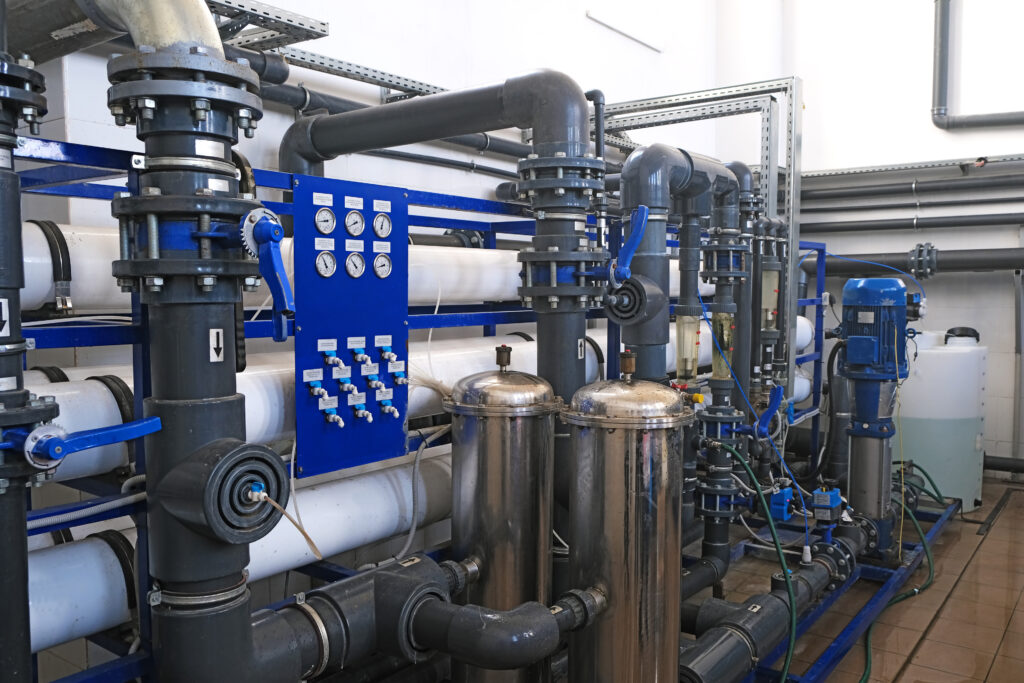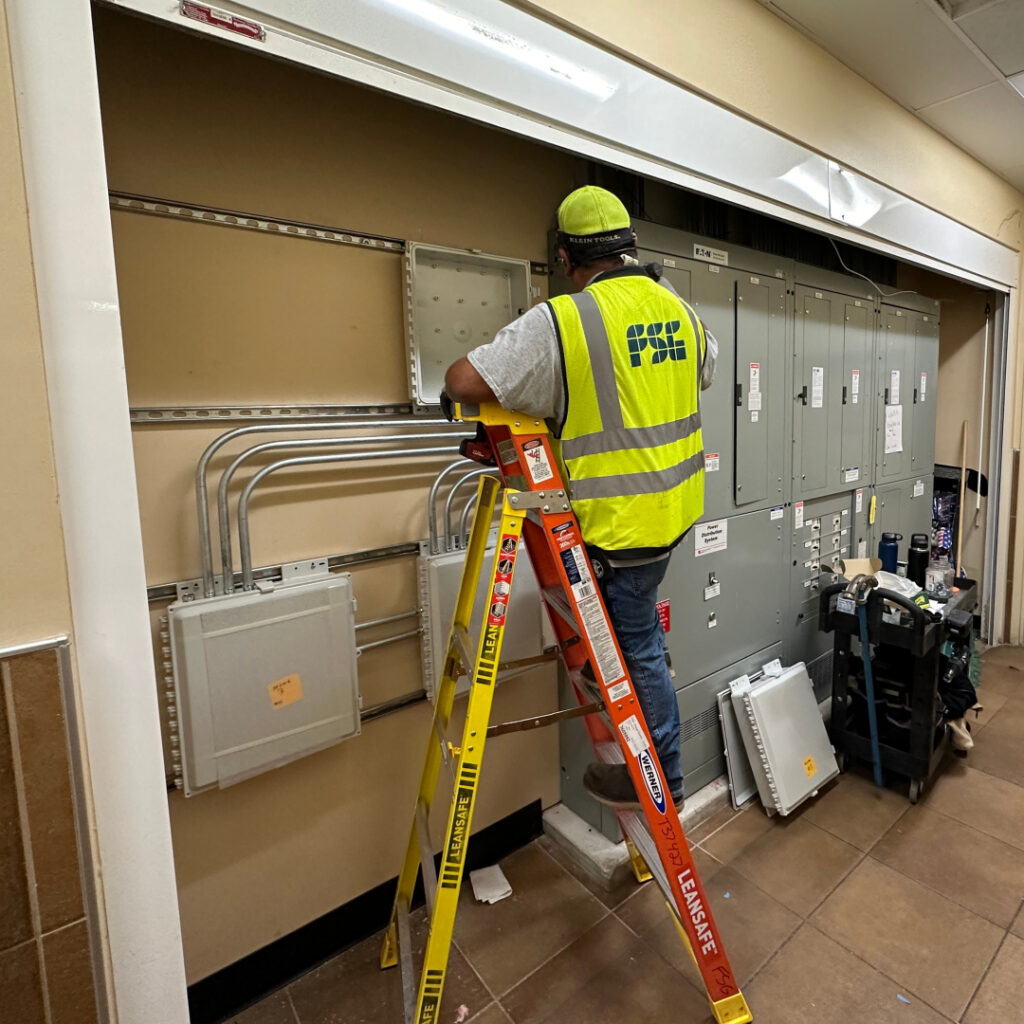Smart Buildings Blog
The latest on all things commercial building automation, energy management, and IoT
The Importance of Implementing Water Efficiency Practices

The amount of water wasted annually in a typical commercial building can vary based on building size, water efficiency measures in place, maintenance practices, and local water usage patterns. However, it is estimated that commercial buildings, on average, waste about 14% of the water they consume due to various factors like leaks, inefficient fixtures, and irrigation practices.
To provide a rough estimate, consider a hypothetical scenario where a typical commercial building consumes 1,000,000 gallons (approximately 3,785,412 liters) of water annually. If we assume a waste rate of 14%, the amount of water wasted annually would be:
1,000,000 gallons * 0.14 = 140,000 gallons (approximately 529,937 liters)
Please note that this is a general estimation, and the actual water wastage can vary significantly depending on the specific circumstances of the commercial building. Implementing water-efficiency practices such as regular maintenance and leak detection programs can help reduce water waste and improve overall water management in commercial buildings.

Source: iStock
Water metering and leak detection are two different practices related to water management:
- Water Metering: Water metering involves installing and using water meters to measure the volume of water consumed by residential, commercial, or industrial users. Water meters provide accurate readings of water usage, typically measured in cubic meters or gallons, and enable billing based on actual consumption. Water metering is essential for utility companies and water providers to track individual water usage, monitor trends, manage resources efficiently, and allocate costs fairly. Using an EMS/BAS helps promote water conservation, identifies abnormal usage patterns, and encourages more mindful water consumption.
- Leak Detection: Leak detection, as mentioned earlier, focuses on identifying and locating leaks in water supply systems, pipes, or infrastructure. The primary objective of leak detection is to detect and address leaks promptly to minimize water loss, prevent damage to infrastructure, and conserve water resources. Leak detection methods can vary depending on the scale of the system being monitored. Techniques such as visual inspection, acoustic sensors, flow monitoring, pressure analysis, and data analytics are used to identify and pinpoint leaks efficiently.
Water metering involves measuring water consumption to facilitate accurate billing and resource management. At the same time, leak detection focuses on identifying and addressing leaks in water supply systems to minimize water loss and infrastructure damage. While both practices contribute to effective water management, water metering primarily measures water usage, whereas leak detection concerns identifying and mitigating water leaks.
Implementing water-efficiency practices offers several compelling reasons and benefits. Here are some key reasons why it is advantageous to prioritize water efficiency:
- Conservation of Water Resources: Water is a finite resource, and water scarcity is a growing concern in many parts of the world. By implementing water-efficiency practices, we can reduce water consumption and help conserve this valuable resource for future generations. Saving water is essential for sustainable water management and ensuring a reliable water supply for human needs and the environment.
- Cost Savings: Water-efficient practices can lead to significant cost savings for individuals, businesses, and communities. Organizations can lower their water bills and operational expenses by reducing water consumption. This is particularly relevant for sectors that rely heavily on water, such as agriculture, manufacturing, hospitality, and commercial buildings. Implementing water-efficient technologies and practices can result in long-term financial benefits.
- Environmental Protection: Efficient water use contributes to environmental protection in several ways. By reducing water consumption, we can minimize the need to extract, treat, and transport water, reducing energy consumption and associated greenhouse gas emissions. Additionally, water-efficient practices can help protect ecosystems, aquatic habitats, and sensitive water bodies by maintaining adequate water flows and minimizing water pollution from runoff and wastewater discharge.
- Resilience to Water Scarcity and Drought: Water-efficient practices enhance stability to water scarcity and drought conditions. By reducing water demand and optimizing water use, communities and businesses are better prepared to cope with water shortages and periods of drought. Water efficiency measures, such as water-efficient appliances, fixtures, and landscaping practices, can help ensure a more sustainable and reliable water supply during dry periods.
- Regulatory Compliance and Reputation: Many regions have implemented regulations and guidelines to promote water conservation and efficiency. By adopting water-efficient practices, businesses and organizations can comply with these regulations and avoid potential penalties. Furthermore, demonstrating a commitment to water efficiency enhances a company’s reputation and sustainability credentials, which can attract environmentally conscious customers, investors, and stakeholders.
- Social Responsibility: Implementing water-efficiency practices is a responsible and ethical approach to resource management. By conserving water, businesses and individuals contribute to the overall well-being of communities, help alleviate water stress on vulnerable populations, and promote sustainable development. Water efficiency aligns with social responsibility initiatives and demonstrates a commitment to environmental stewardship.
In summary, implementing water-efficiency practices is crucial for conserving water resources, reducing costs, protecting the environment, building resilience, complying with regulations, and fulfilling social responsibility. It is an integral part of sustainable water management and supports this precious natural resource’s more efficient and responsible use.
Let FSG Smart Buildings help you with your water efficiency. Contact us and find out how we can deliver success for your organization today.
Interested in building automation and helping customers build smarter buildings? Come work for us! FSG Smart Buildings is hiring talented people looking for a great career in building automation.
More from the Blog

Helping Make Circle K’s Continuous Lab a Reality
Helping Make Circle K’s Continuous Lab a Reality
Circle K‘s success in the convenience retailing industry spans over 60 years and has developed into a global chain. Facility…

Building Automation Systems Are Key to Efficient Facility Management
Building Automation Systems Are Key to Efficient Facility Management
Facility managers responsible for multi-site operations understand how important it is to find ways to reduce energy consumption and minimize…

Implementing a Successful Energy Savings Program
Implementing a Successful Energy Savings Program
Commercial buildings significantly contribute to energy waste due to size, occupancy patterns, and energy-intensive operations. The amount of energy wasted…
